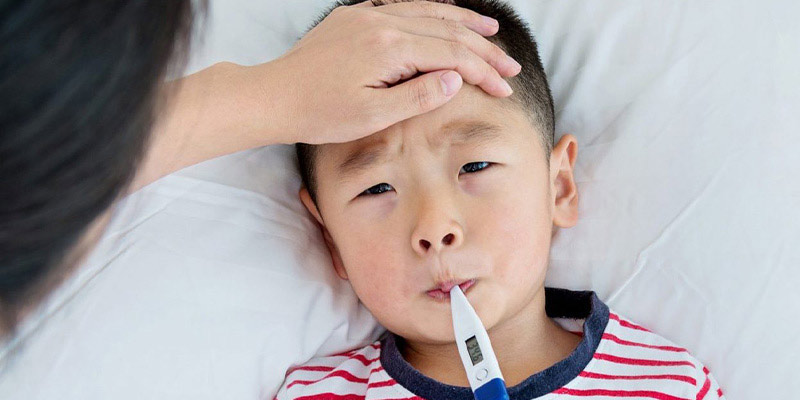-
Need a little extra support?
Going to hospital?
If you’re an eligible member with hospital cover you can speak to our Health Concierge# to get support and guidance before and after your hospital stay. Call 1800 789 414 between 9am—5pm AEST (Mon-Fri). Just be sure to have your Medibank membership details ready.
Got a health question? 24/7 Medibank Nurse Support
Medibank health insurance members can chat to a registered nurse over the phone or online to discuss general health questions or concerns at no extra cost.~ Chat online or call 1800 644 325 24 hours a day, 7 days a week.
Adenoids are constantly in the path of germs so infections are common which, in turn, can cause ear and breathing issues. But with the main symptoms mimicking those of a common cold, how do you know when your adenoids are the culprit?

First things first where are my adenoids?
Commonly confused with the tonsils, adenoids are small lumps of soft tissue found at the back of the nose in children. As part of the immune system they can be instrumental in fighting infection.
Whilst everyone is born with adenoids they start to shrink when you reach the age of 5 – 8. By the time you are a teenager they have usually disappeared entirely.
What happens when they are infected?
Infections cause your adenoids to swell up again. Common symptoms of infected adenoids are easy to confuse with the common cold.
According to Better Health these symptoms can include:
- breathing through the mouth
- snoring when asleep
- talking with a 'blocked nose' sound
- the inability to pronounce certain consonants, including 'm' and 'n'
- dry and sore throat because of breathing through the mouth (this is often a problem in the morning after sleeping with the mouth open)
- yellow or green mucus coming from the nose.
How do I know if its adenoids or a cold?
Infections of adenoids can cause a variety of complications that set them apart from a common cold
- Middle ear infections: due to the position of the adenoids, right at the end of the tubes from the middle ear to the throat, infections can easily spread up to the ears. This can affect hearing and balance.
- Glue ear: swollen adenoids can block the Eustachian tubes which results in a build-up of sticky mucus. This also affects hearing.
- Sinusitis: the infection of the air-filled cavities of the skull.
- Chest infections: bacteria or viruses from your adenoids can infect other sites such as the bronchi or lungs.
- Vomiting: swallowing large amounts of pus produced by the infection may happen overnight whilst sleeping which can lead to vomiting in the morning.
If you or your child experiences any of these whilst also suffering from cold-like symptoms it’s worth seeking advice from your doctor who can advise on the best course of treatment.
What are the treatment options for this?
Often the treatment for adenoids depends on the effects they are having. Antibiotics are often used to treat the chest infection, ear infection or sinusitis caused by the infected adenoids.
If you or your child suffers from recurrent infections that are interfering with hearing or breathing your doctor may advise you to undergo an adenoidectomy.
This is a surgery performed under general anaesthetic. Although relatively straightforward, post-operative complications can include vomiting, difficulty swallowing, pain and bleeding.

Looking for something else?
Visit our Hospital Assist homepage for a range of tools and advice to help you at every stage of your hospital journey.
Help the way you want it
Contact us
Call us on 134 190 to speak to a consultant. Alternatively, chat to us 24/7 online.
Self-service options
Login to MyMedibank or Download the MyMedibank App for self service options.
Find a specialist
Find a specialist or Member's choice hospital using our find a provider tool.

Things you need to know
~ Some referred services may involve out of pocket costs and waiting periods may apply.
While we hope you find this information helpful, please note that it is general in nature. It is not health advice, and is not tailored to meet your individual health needs. You should always consult a trusted health professional before making decisions about your health care. While we have prepared the information carefully, we can’t guarantee that it is accurate, complete or up-to-date. And while we may mention goods or services provided by others, we aren’t specifically endorsing them and can’t accept responsibility for them. For these reasons we are unable to accept responsibility for any loss that may be sustained from acting on this information (subject to applicable consumer guarantees).